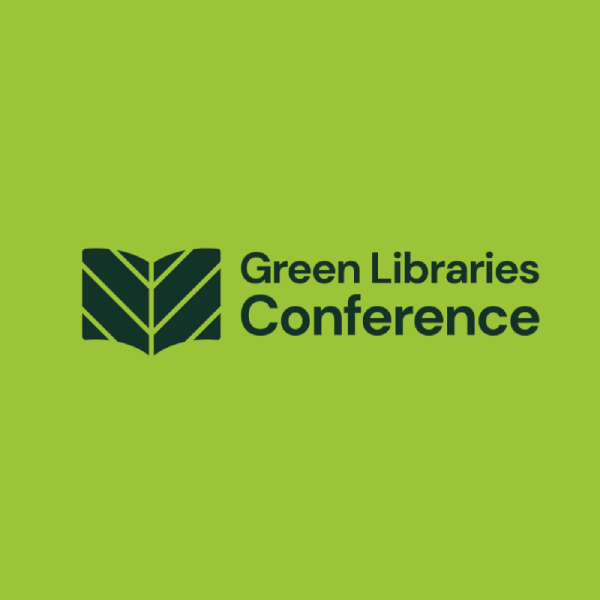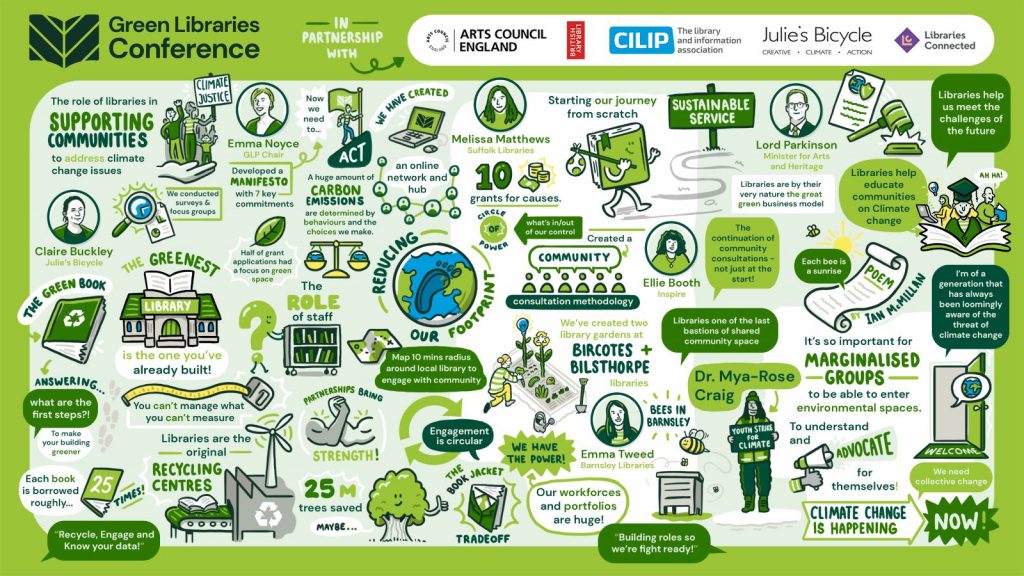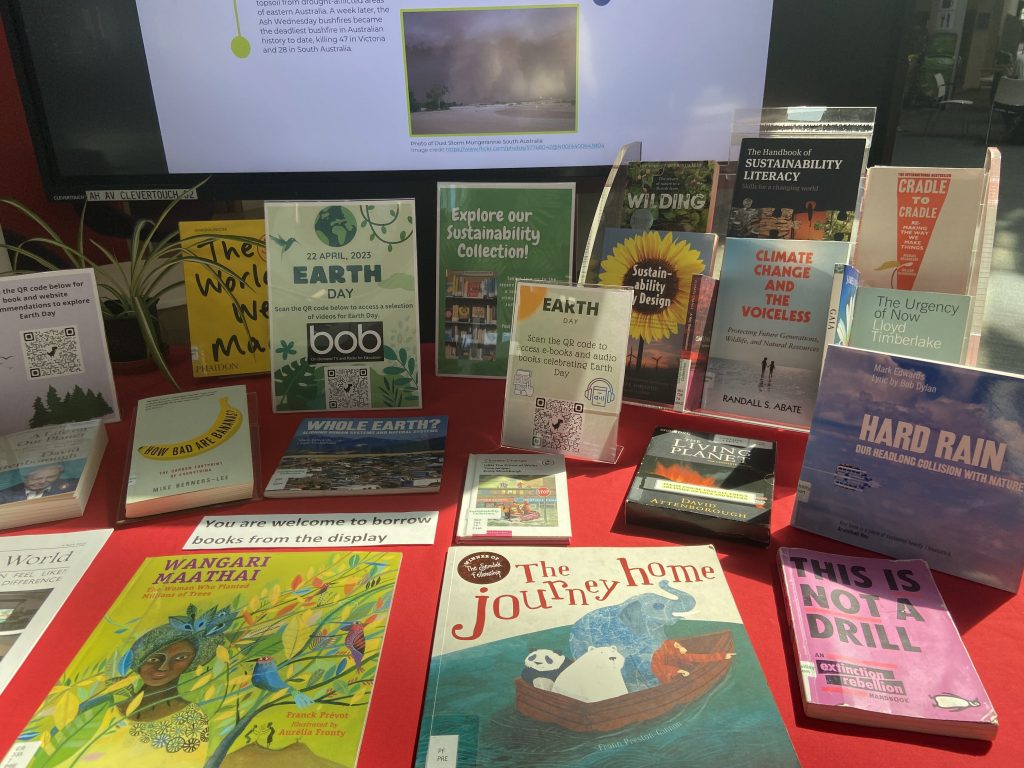CILIP, the UK’s library and information association, hosted its first-ever Green Libraries Conference at the Wellcome Collection in London on Friday 24th March. In this blog post, Irene Szmelter (a library & information advisor here at Augustine House) reports on some of the highlights from the conference and its key takeaways on how libraries can play their part in tackling climate change. Its exciting conference programme promised keynote speeches, quick-fire presentations and panel discussions with inspirational speakers who are leading the way towards greener libraries.
Laying the groundwork
The conference kicked off with a series of presentations that explored how libraries are important institutions in the fight against climate change. Sustainability and recycling are actually very central to what libraries are and what they do. By their very nature, libraries are part of the circular economy – instead of each reader (or student, in our case) having to buy their own copy of a textbook, DVD or journal, libraries allow multiple people to use and reuse that same resource. Here at Augustine House, we also donate our worn out books to Better World Books, an organisation which not only finds many a new home (saving them from landfill) but uses part of the profit from selling these books to help fund literacy and education initiatives worldwide.
Serving as a trusted source of information, libraries moreover have a vital role to play in combating climate denialism and the war on climate science and knowledge. Dedicated sustainability collections are now commonplace in libraries, offering everyone in the (student and/or local) community access to the very best nature writing and resolute non-fiction. Reading may seem like a small action in the face of the climate emergency, but books (and all sorts of other resources) can be a source of hope, provide an informed understanding and inspiration for ground-breaking ideas that can help build a better world. It is a good first step. Be sure to check out our own Sustainability Collection on Floor 2!
Climate change is a global threat that requires collective action, and this notion would come up again and again throughout the day’s talks. Fortunately, libraries excel at community engagement as Julie’s Bicycle pointed out, a charity pushing for the arts sector to take climate action and sponsor of the conference. We not only provide a community with educational resources, we are a hub of community. It is a space where people can come together to share ideas, collaborate, and engage in discussions. To celebrate Earth Day at Augustine House, for instance, we have assembled a book display for students to enjoy this week.
Libraries can be powerful actors in the climate crisis, whether by helping to reduce overconsumption (i.e. one book for many students), raising awareness of environmental issues through their collections, making these resources readily accessible, or being ideally situated to engage with a community. It is important that we continue advocating for the role and power of libraries to fight climate change.
Taking positive action for the planet
The next session presented us with three areas to focus on in our libraries – infrastructure, recycling and community engagement. It was particularly intriguing to hear from Colin Walker, from Hampshire County Council Property Services, that the greenest library was the one you’ve already built. Before building any new ‘climate-friendly’ buildings, we should focus on ways to make the fabric of our current library buildings more energy efficient. The first step in doing this, we were told, is knowing your data well – after all, you can’t manage what you can’t measure! One quick way to do this is to divide your annual energy bill in kWh by the total internal floor area in m² and work towards bringing that figure down. Paddy Dillon from Theatres Trust also encouraged us to make full use of the Arts Green Book; this free online guidebook sets out how those in the arts and cultural sector can make their buildings more sustainable, starting with the easy wins (like draught proofing) to advice on planning a maintenance strategy and those bigger capital projects.
Breaktime!
The Green Libraries Conference was, above all, an opportunity for people working in libraries to learn from each other, exchange knowledge and inspire one another. The conference brought together over a hundred delegates who are passionate about environmentalism and represent libraries across the country, ranging from public to academic institutions. So, there was plenty to talk about over lunch (veggie, of course)! It was particularly interesting to meet others also working at university libraries. We shared ideas about how to make academic libraries powerhouses for climate action and we hope to continue exchanging insights and good practice in the future. Having conversations, making connections and forging partnerships is absolutely essential to tackling the climate crisis.
Engaging communities for a green and just transition
In the final session of the day, three libraries shared how they empowered their local communities, tackled social injustices and inspired action against climate change. One of my favourite case-studies from this showcase was the Bees in Barnsley Festival, held at Worsbrough Library back in October 2022. It celebrated all things bees and put together an exciting programme of activities all centred around the importance of bees in the natural world. This included everything from putting on a workshop for families to create their very own bee hotels, inviting a local primary school to learn more about these precious pollinators, to talks from the local beekeeping association. This dynamic range of events appears to have offered something for everyone in the community to get involved with – what a wonderful way to open up conversations about climate change!
Plenary, key takeaways & Augustine House
At the end of the conference, we were presented with this fantastic illustration that encapsulates many of the key themes and takeaways from the day. I found the conference really inspiring. Sometimes, the climate crisis can feel overwhelming and something insurmountable but attending events like the Green Libraries Conference give me hope.
Still, these are early days, there is a lot more work to do – and urgently so. This conference showed that libraries can empower communities to take climate action and that’s what we hope do at Augustine House. A team of us have put together a book display this Earth Day to inspire students to educate themselves about this important issue.
We need to keep up this momentum beyond Earth Day and we are actively looking for ways to do this. Everyday, we need to be pushing for a better, greener and transformed world. Environmental thinking needs to be central to everything we do here. So while our book display is temporary, the Sustainability Collection is a permanent fixture on Floor 2 of the Library – and, we are always open to recommendations to develop this further (drop a suggestion here). Many of our other book displays throughout the year have also tried to incorporate environmental themes, for instance, we included Greta Thunberg’s Climate Book in our Women’s History Month display. In the near future, moreover, the library team will undertake Carbon Literacy training to learn more about how we can reduce our emissions as an organisation. Students can also sign up to sessions, too. I came away from the conference with a renewed sense of how important it is that we have those conversations, share knowledge and work together. If you have any ideas on how the Library can help tackle the climate crisis, please get in touch!
In the meantime, I hope you enjoy our Earth Day display this week. And please do check out the resources I have linked below to learn more.
Bonus – tour of the Wellcome Library
The Wellcome Collection in London was a rather fitting venue for the conference. The Wellcome Collection really signifies the intersectional nature of climate change. This museum and library explores and records the history of health in its widest possible sense, including everything from medieval astrological tables to public health information films from the 20th and 21st centuries, but also more unusual pieces on witchcraft, for instance, and even food. The collection also includes items related to climate change which has, of course, many impacts on human health. Air pollution, for instance, not only harms the natural world but causes chronic respiratory diseases, lung cancer, stroke and heart disease; the poorest and most marginalised communities in society are usually those who live nearest to major sources of pollution and so usually face a higher risk of developing these diseases.
We had a tour of the Wellcome Library, which houses an extensive collection of books on the history of modern health and medicine. It was interesting to learn that the most of the Library is classified using the Library of Congress system. This was opted for because the publication date is always included in the classmark and since readers are predominately writing and researching on the history of medicine, this makes it much quicker to pull books off the shelves to compare and contrast medical thinking in, say, the 1930s with works written in the ‘90s. It was also a really beautiful space! And a lovely way to end such an inspiring day.
Resources
Mikaela Loach, It’s Not That Radical (London, 2023) – audiobook available here.
Green Libraries Conference webpage including copies of the presentations and further resources.
 Library
Library Irene Szmelter
Irene Szmelter 1110
1110






